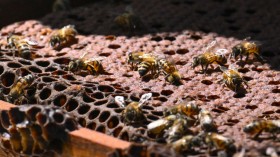If reality was like the movies, this is probably the first step in the inevitable takeover of artificial intelligence. In a new paper, scientists shared that AI now have the ability to steal code from other programs and use it for itself.
Microsoft and the University of Cambridge teamed up to create a system called DeepCoder, which creates its own programs by combining lines of code poached from existing software, according to a report from New Scientist. With inputs and outputs for each code fragment, the system is able to determine which fragments are necessary for the program's overall objective.
Marc Brockschmidt, one of DeepCoder's creators at Microsoft Research in Cambridge, UK, pointed out that this allows non-coders to built their envisioned program through the system.
Read Also: DIY-Bot: Scientists Share How to 'Make Your Own' New Generation Bio-Bots
In some ways, DeepCoder can be used even by humans who know how to write their own codes. Since artificial intelligence can search for data and codes much more thoroughly than humans, the system has the potential to combine code fragments in a way humans haven't thought of. An AI is also faster and more efficient, plus it's able to learn from every experience.
"All of a sudden people could be so much more productive," Massachusetts Institute of Technology's Armando Solar-Lezama, who was not involved in the work, explained. "They could build systems that it [would be] impossible to build before."
He added, "The potential for automation that this kind of technology offers could really signify an enormous [reduction] in the amount of effort it takes to develop code."
Only the simplest problems are being solved through DeepCoder -- around just five lines of code -- for the moment, but the potential is enormous. After all, Solar-Lezama pointed out, big pieces of code are built by piecing together little pieces.
In the meantime, coders will be able to focus on more advanced work as the system takes care of the simpler tasks.
Read Also: This Creepy Ostrich-Like Robot Could Be the Future of Deliveries
© 2024 NatureWorldNews.com All rights reserved. Do not reproduce without permission.




